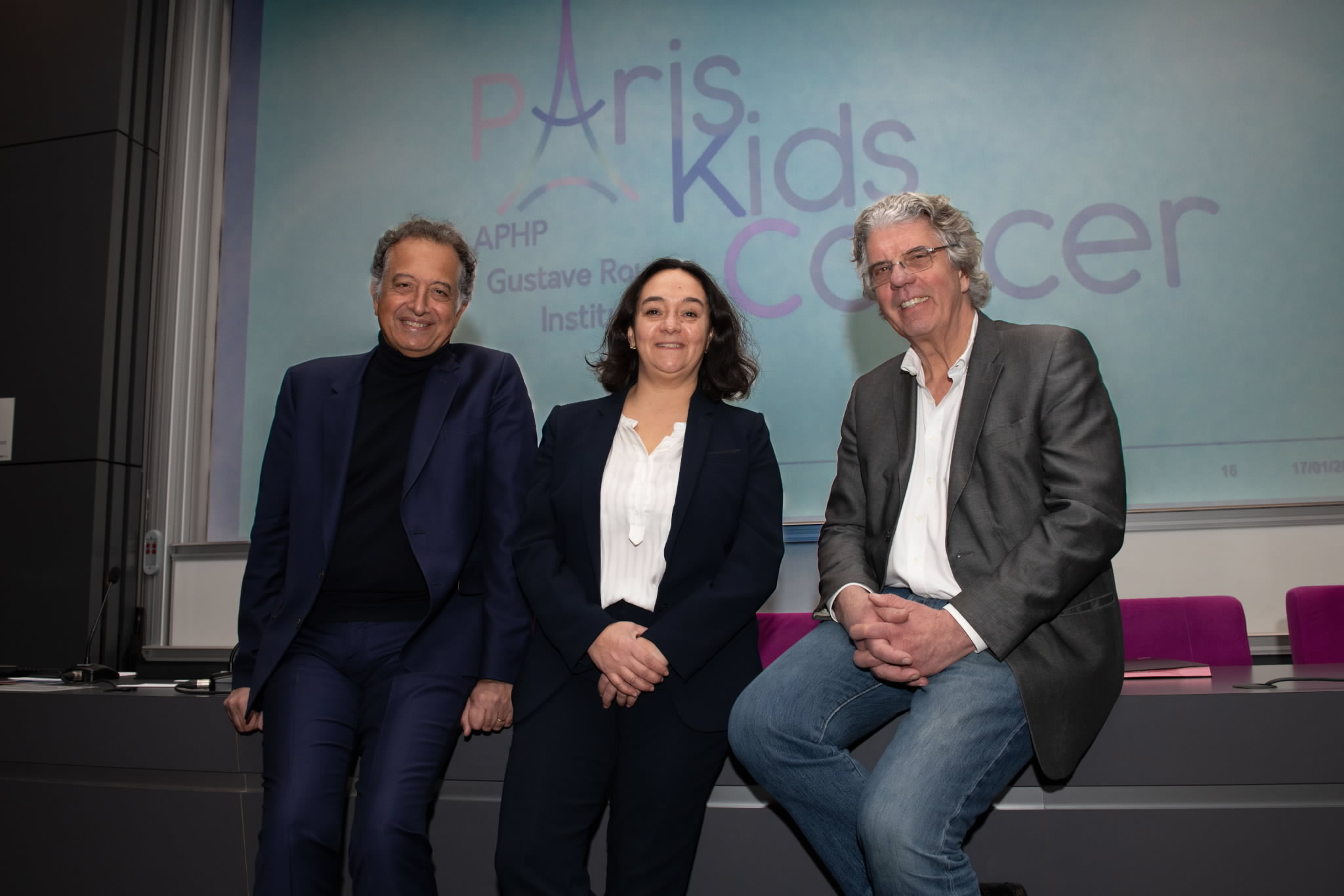According to the French National Cancer Institute, 2,260 children and teenagers are diagnosed with cancer every year in France. And 450 still die from it, i.e. 20% of all children. Pediatric cancers, by their very nature rare, represent a real challenge for research, which the Paris Kids Cancer (PKC) has decided to take up.
Labellised in December 2023, the PKC held its kick-off meeting on January 17. The project brings together not only three major oncology players (AP-HP Assistance Publique – Hôpitaux de Paris, Gustave Roussy and Institut Curie), associated in the PKC management, but also several universities, research organizations and partner centers, as well as three major parents’ associations (the Imagine for Margo – Children without cancer association, the Hubert Gouin – Enfance et cancer association and the Laurette Fugain association). Their common goal is to develop innovative treatments and cure more young patients. “We want the PKC to bring together and integrate all those involved in pediatric oncology in the Paris region, who are currently scattered across different institutions,” explains Dr. Olivier Delattre, director of the PKC, assisted by Prof. André Baruchel (AP-HP) and Prof. Véronique Minard-Colin (Gustave Roussy).
The PKC was created in response to the French National Cancer Institute’s call for projects, PEDIACRIEX23. It will benefit from a total budget of 6 million euros over 5 years. It brings together some thirty research teams, spanning the entire ecosystem from basic research to pediatric oncology care (researchers, pediatric oncologists, surgeons, pathologists, etc.).
A modern, collaborative approach
The first projects launched will focus on three areas of research: understanding and controlling the genetic processes of cancer cells, finding new avenues for immunotherapy, and using new biomarkers for early detection of tumor resistance mechanisms. “These major projects are quite broad,” admits the PKC director. “They all aim to better understand the development mechanisms of childhood cancers, in particular to better identify the cells from which these cancers develop, to understand the relationships between normal and tumor development.” With one priority in mind: “to define certain points where PKC can have a real impact”.
Although no private players are involved in the project at present, they will certainly be involved in the long term, when clinical trials are set up. The stated aim of the PKC is to translate translational research programs into clinical applications. The program not only promotes closer links between researchers and medical researchers, but also between basic and applied research.
“Paris Kids Cancer aims to act as a catalyst and gas pedal for research into childhood cancers, helping to translate basic and translational research discoveries into clinical practice. We also want to bring together regional players in this field, from different disciplines, and pool and analyze massive data, thanks to artificial intelligence,” says Dr Olivier Delattre, Director of Paris Kids Cancer, Director of Research at Inserm and Director of the joint Inserm/Institut Curie research unit U830 “Cancer, Heterogeneity, Instability and Plasticity”.
Dr Delattre laments the fact that, at present, “many clinical trials in children (are) underway, but (they are) mainly academic, with little funding from industry. Childhood cancers are rare; it’s a niche market. One of our objectives is for manufacturers to draw inspiration from PKC’s discoveries to initiate pediatric developments (PIP).” Parents’ associations also have a major role to play in changing regulations, facilitating and encouraging manufacturers to initiate trials, and, in short, “lobbying various bodies to speed up access to new drugs and improve the treatment of childhood cancers”.
The impact of the disease, its social and psychological aspects, will also be studied, through the human and social sciences. The idea will also be to transcribe into clear, accessible language the scientific terms that are sometimes difficult to understand for the uninitiated, especially children and their families. In this way, those primarily concerned will be fully involved in the project, which aims to improve understanding of pediatric tumors by and for everyone.



